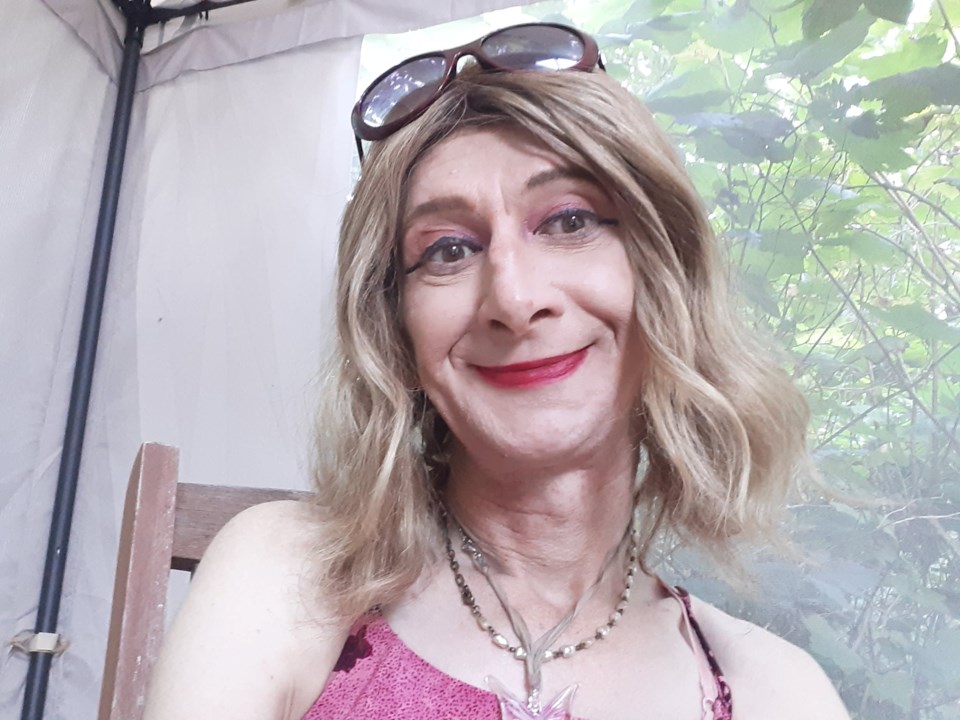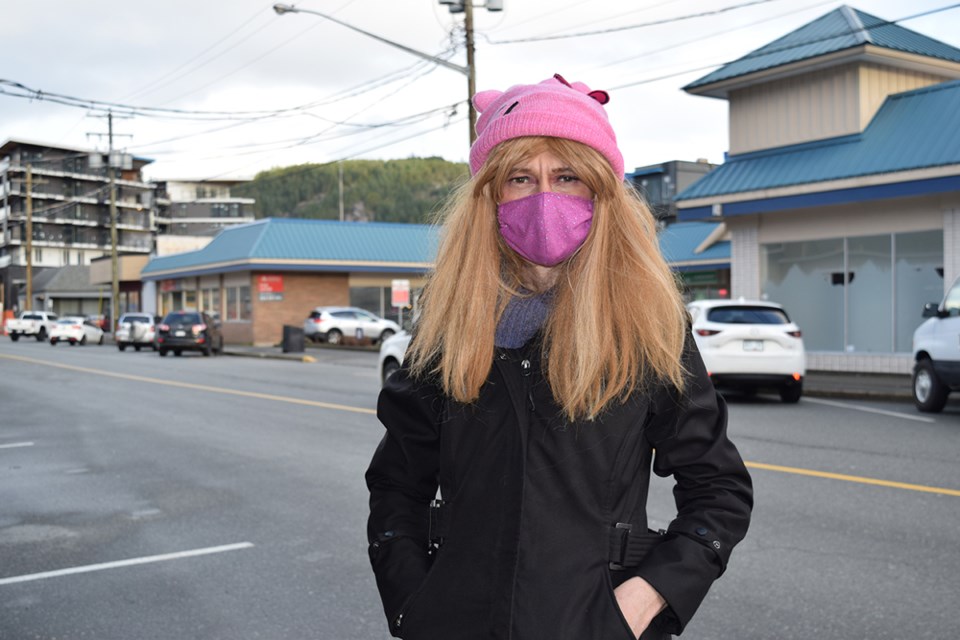Marcella Nicole Faveris — friends call her Marcie — says though there have been struggles along the way, she has never smiled so much as she has since beginning to transition this summer.
"I like who I am now," she said. "I am a lot happier than I was five or six months ago."
Faveris, 46, moved to Squamish from East Vancouver in 1989 with her family.
From a young age she felt different and was bullied, she said.
She first came out — wearing women's clothing in public — in 2005, but that was also the year she married, after meeting her wife through a personal ad in the Squamish paper.
She put her feelings of being a woman aside until three years ago, after her former wife had died.
This past July she began anew.
"I was tired of being who I wasn't. And I have never smiled more, really," she said.
Some friends told her to come out more and be more true to herself, she said.
She said she is speaking out about her situation because she thinks there is a lack of understanding and education around transitioning and around the hardship the pandemic is on some in town.
Transitioning is a long process, she said. It is not something you can snap your fingers and make happen overnight.
She started hormone therapy at the end of September.
She hopes to complete the reconstructive gender-affirming surgeries in the next few years.
“It’s a long road ahead,” she said.
Not everyone has been accepting of her transition; some people from her past have not understood or cut off contact altogether, she said.
Housing too, she said, is harder to come by. People don't acknowledge it, but she thinks some landlords don't want to rent to her.
"That makes it harder to find a place," she said.
Day-to-day though, she hasn't had a problem out and about in town.
"A lot of people don't recognize me anymore," she said.
She said she is learning a lot from talking to other women in town, especially online, though there too she has run into some lack of acceptance and understanding.
She said that her doctor and Howe Sound Women's Centre have been a big help and support locally.
Transitioning during the pandemic has been the biggest challenge. She said the COVID-19 restrictions are tough on her.
"Dr. Bonnie Henry has made life difficult," she said.
"I have nothing against her, I just don't like the policies. It has made my life a living hell."
Though she talks to other transgender folks online, which helps, she feels isolated from others due to the restrictions.
Like for everyone, some health appointments are over the phone and not in person, too.

Wearing a mask causes her anxiety, she said, though she wears one nonetheless.
"My doctor keeps reassuring me that things are going to get better in six months," she said. "I am trying to focus on the good."
She is in between jobs, but hopes to get work in housekeeping, something she did before in Whistler.
Her advice for others who are thinking about coming out is: "Don't be afraid. Don't be scared. Just come out and be yourself. Don't let others judge you for what you look like or feel like."
An estimated 46,000 people identify as trans or gender diverse in B.C., according to TransCareBC, which is a provincial resource.
Go to www.phsa.ca/transcarebc for more information.
*Please note, this story has been corrected since it was first posted. Originally it had the wrong month of when hormone therapy began. It began in September, not August.




